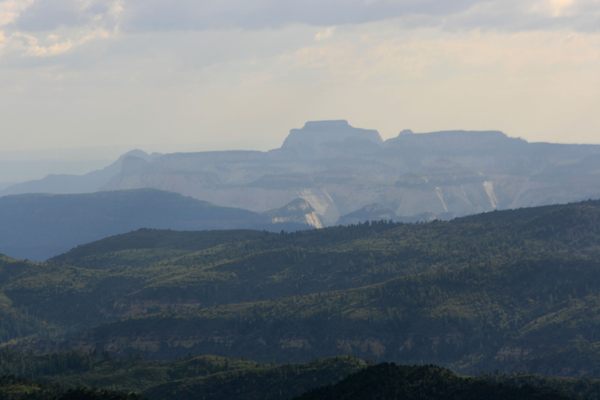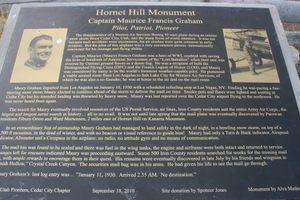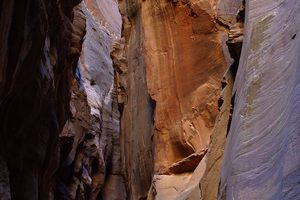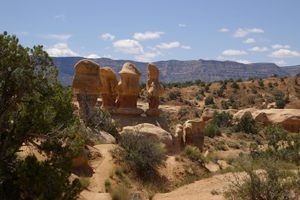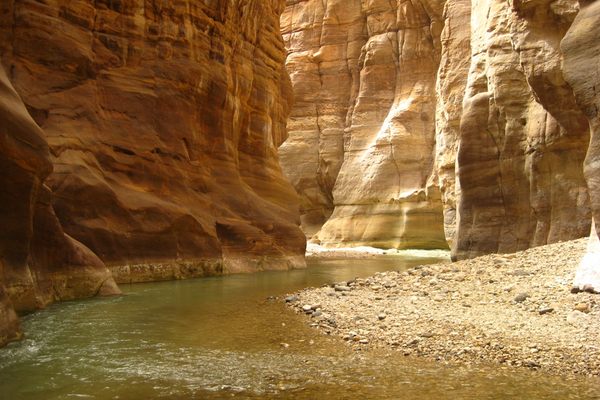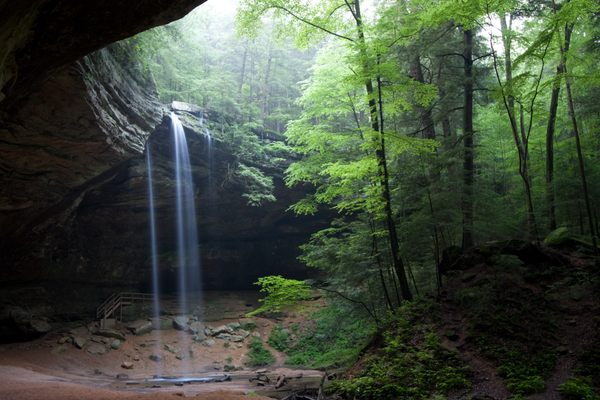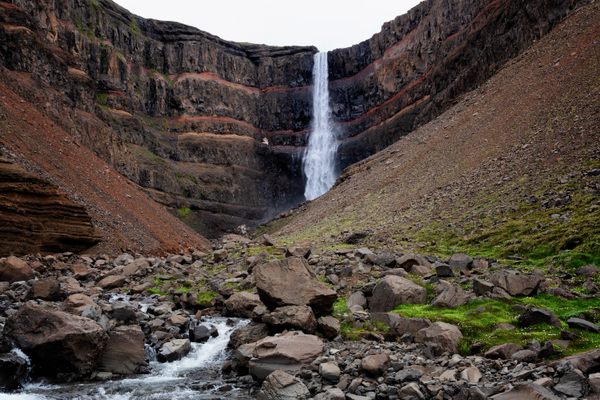About
Southwestern Utah is known for the spectacular colors of its scenery and is home to several national parks and monuments. The orange-and-white Claron Formation (formerly known as the Wasatch Formation), in particular, is responsible for both Bryce Canyon National Park and Cedar Breaks National Monument. By comparison, the Pink Cliffs formed by the Claron above the Virgin River Rim almost seem dull. Except for one thing: Cascade Falls.
At one point water springs out of the Pink Cliffs and drops into the headwaters of the Virgin River, making an attractive and surreal waterfall. It emerges at an elevation of about 8,800 feet, while the ridge above tops out at over 9,400 feet. The source of the water is shallow Navajo Lake, which has a natural dam of basalt lava and floods the bottom of a valley beyond that ridge. The lake lies at an elevation a bit over 9,000 feet and is a little more than a mile, as the crow flies, from Cascade Falls. The Claron Formation is sufficiently permeable that the lake water has found a path through it.
Related Tags
Know Before You Go
Turn south from Utah SR-14 and go 0.2 miles on USFS 56. This turnoff is about 9.9 miles east of the intersection with Utah SR-148 and should be signed for the Duck Creek Visitor Center. Then go right onto USFS 370 1.6 miles, and then left onto USFS 054. Follow it to the trailhead at the end of the road (1.7 miles). The Cascade Falls trailhead is on the right toward the outside edge of the parking area.
Do not take the Virgin River Rim trail, which has trailheads on either side of the parking lot farther back from the edge, as it doesn't connect. The Cascade Falls trail itself is improved, with steps and retaining walls, and ends at a viewing platform over the falls after about a mile.
Community Contributors
Added By
Published
June 10, 2021











